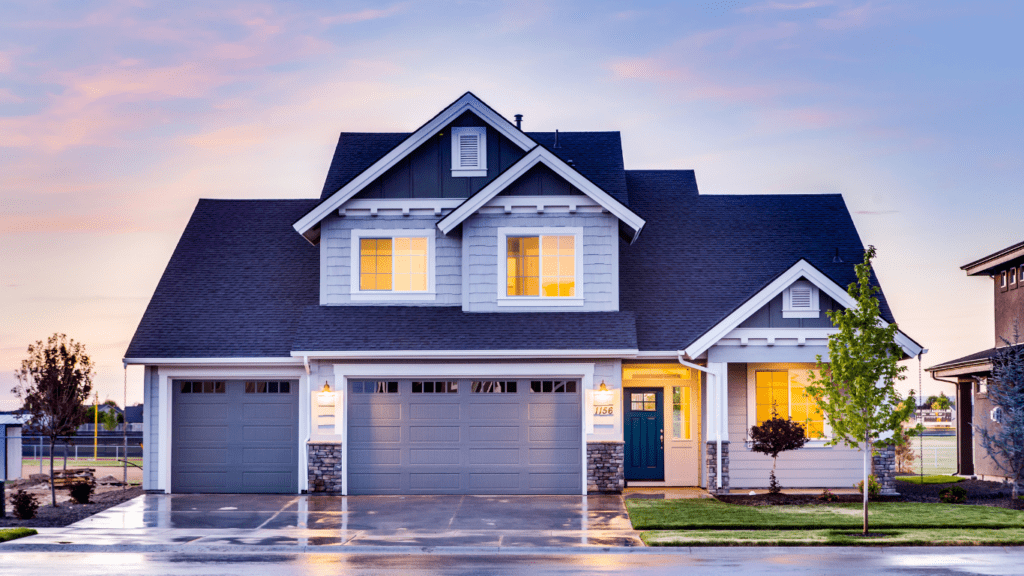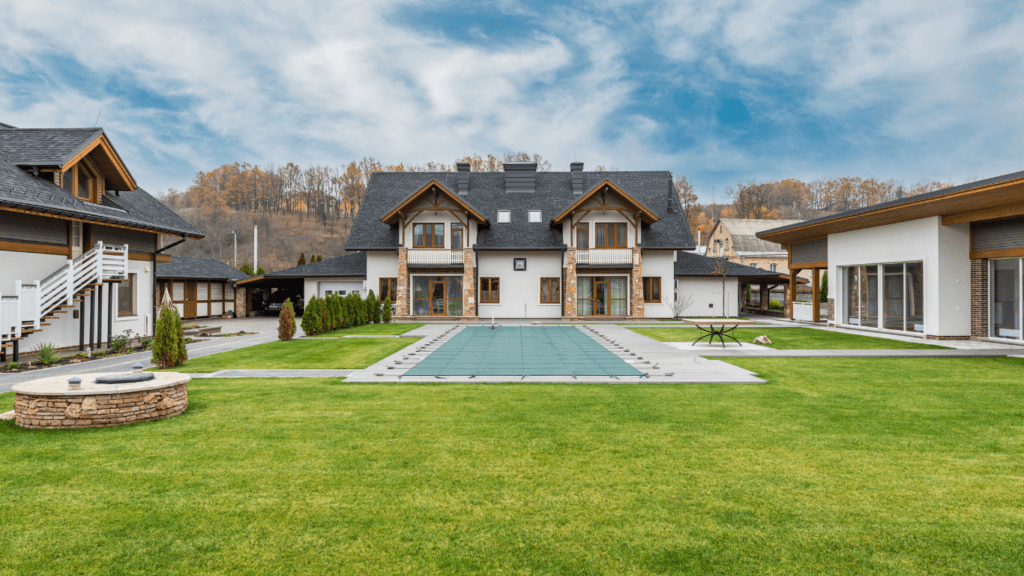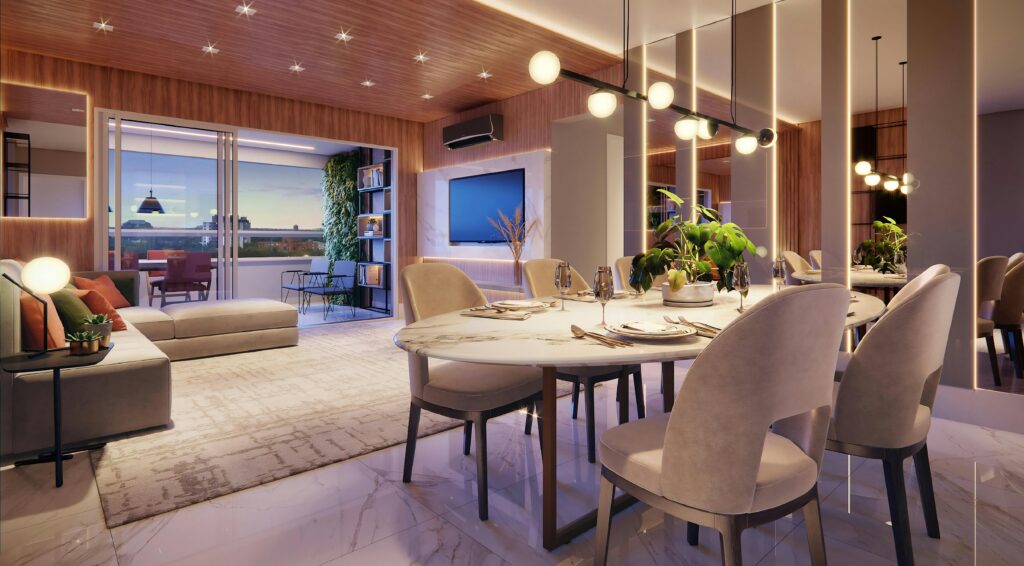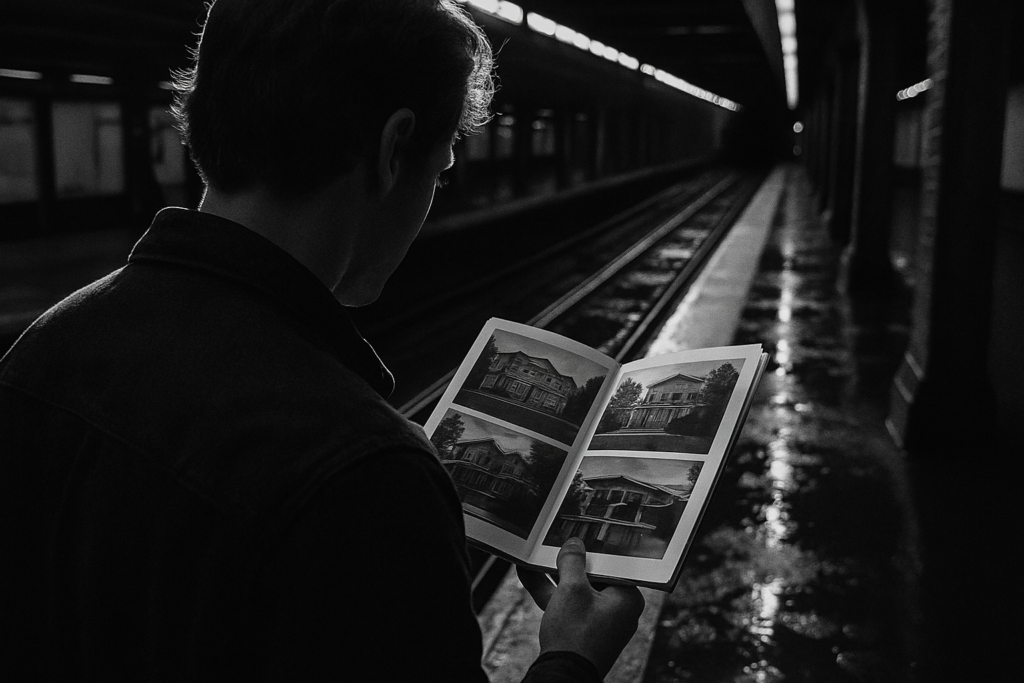The Evolution of Luxury Real Estate Through Technology
Technology’s impact on luxury real estate is profound, revolutionizing the entire property experience. Virtual reality (VR) tours, once limited to the imagination, are now standard. Potential buyers can explore properties across the globe without leaving their homes. Examples include high-definition, interactive VR tours that provide 360-degree views of each room. This technological leap saves time and streamlines the decision-making process.
Artificial intelligence (AI) and machine learning (ML) offer predictive analytics to both buyers and sellers. These tools analyze market trends, predict property values, and identify investment opportunities. By using AI, real estate agents can tailor listings to match buyer preferences more accurately. For example, AI can recommend properties based on past searches and personal preferences.
Smart home technology is pivotal in modern luxury properties. Smart thermostats, security systems, and lighting control enhance convenience and security. Homes fitted with these devices offer real-time monitoring and remote control. For instance, smart locks and video doorbells allow homeowners to manage property access from their smartphones. This level of control improves overall living standards and provides peace of mind.
Blockchain technology ensures secure and transparent transactions. Utilizing blockchain, luxury real estate transactions can be completed with minimal fraud risk. For example, digital contracts and secure property records enhance trust between parties. This transparency simplifies ownership transfers and reduces legal complexities.
Augmented reality (AR) is also transforming property visualization. AR allows potential buyers to overlay digital furniture and decor onto physical spaces. This visualization aids in understanding spatial configurations and design possibilities. For instance, AR apps enable users to virtually furnish a room, providing a tangible sense of layout before purchase.
Technological advancements in luxury real estate streamline processes, enhance experiences, and simplify transactions. From VR tours to smart homes, these innovations make property dealings more efficient and secure.
Smart Home Innovations
Luxury real estate now integrates smart home innovations, evolving the entire living experience. Key advancements in automated lighting, climate control, and security systems redefine convenience and comfort.
Automated Lighting And Climate Control
Automated systems optimize lighting and climate control to enhance energy efficiency and comfort in luxury homes. Advanced lighting solutions adjust brightness and color based on the time of day and occupancy. For example, smart bulbs can dim during evening hours to create a relaxed ambiance. Smart thermostats, like Nest or Ecobee, learn residents’ schedules, adjusting temperatures accordingly and providing energy reports to monitor usage. This technology not only improves living conditions but also reduces energy costs.
Advanced Security Systems
Security in luxury properties has significantly advanced with smart technology. High-definition surveillance cameras offer real-time monitoring accessible via smartphones, ensuring homeowners can check their property from anywhere. Motion sensors and smart locks enhance security, sending instant alerts during suspicious activity. Biometric authentication adds another layer of protection, using fingerprint or facial recognition to control access. These systems provide peace of mind by integrating into an all-encompassing smart home ecosystem.
Virtual Tours And Augmented Reality
Technology has greatly enhanced luxury real estate experiences, with virtual tours and augmented reality leading the charge. These innovations provide immersive, convenient, and efficient ways to explore properties.
Virtual Staging
Virtual staging uses digital technology to furnish and decorate an empty property. This approach enables potential buyers to visualize the space’s potential without physical staging. Properties can showcase different styles and layouts, allowing for tailored presentations to various buyer preferences. According to the National Association of Realtors (NAR), 77% of agents agree that virtual staging helps buyers connect emotionally with a home, making it a powerful tool in luxury real estate.
3D Property Tours
3D property tours offer a detailed and interactive view of a home. Buyers can navigate through rooms, zoom in on details, and get a true sense of the property’s layout from any location. These tours save time and resources, eliminating the need for physical visits until later stages of decision-making. Real estate companies like Matterport and Zillow 3D Home provide platforms for creating these immersive experiences, making them accessible to both agents and buyers.
The Role of Big Data And AI
Big Data and AI are transforming the luxury real estate market by offering unparalleled insights and efficiency. These technologies enhance decision-making and personalization in ways previously unimaginable.
Predictive Analytics
Predictive analytics leverage historical data to forecast future trends in the real estate market. Buyers and sellers can identify optimal investment opportunities using algorithms that analyze:
- market conditions
- property values
- buyer behavior
For example, AI-driven models predict when property prices are likely to rise or fall, helping buyers make informed decisions and sellers determine ideal listing times.
Personalized Marketing Strategies
AI and big data enable the creation of highly personalized marketing strategies. Real estate companies can now tailor their advertising to match individual preferences, improving engagement and conversion rates. By analyzing user behavior, AI customizes property suggestions, virtual tours, and advertisements, which increases the likelihood of connecting with potential buyers. For instance, targeted ads based on search history and demographic information significantly enhance the marketing impact.
Blockchain And Real Estate Transactions
Blockchain technology is revolutionizing the luxury real estate sector. Blockchain ensures secure, transparent transactions and introduces the concept of smart contracts.
Secure And Transparent Transactions
Blockchain creates immutable records, ensuring the authenticity and security of real estate transactions. Traditional transactions involve intermediaries, increasing costs and potential for errors. By securely recording each transaction step on a distributed ledger, blockchain eliminates these intermediaries, reducing costs. For instance, once a property sale is recorded on the blockchain, it can’t be altered, preventing fraud. This transparency gives buyers confidence, knowing every transaction detail is accurate and verifiable.
Smart Contracts
Smart contracts automate agreement enforcement, reducing the need for intermediaries. These blockchain-based contracts execute automatically when predefined conditions are met. For example, a smart contract can release funds to a seller once a buyer confirms property receipt, streamlining the process. This reduces disputes and accelerates transaction times. Using smart contracts in luxury real estate simplifies complex agreements, making transactions faster and more efficient. Buyers and sellers can trust that terms will be met objectively, as coded into the smart contract.
Sustainability And Energy Efficiency Technologies

Sustainable practices and energy-efficient technologies are becoming integral to the luxury real estate market. These advancements not only enhance the living experience but also contribute to long-term environmental and economic benefits.
Green Building Materials
Green building materials are transforming luxury real estate with their environmental advantages. These materials include reclaimed wood, recycled metal, and low-VOC paints. Reclaimed wood, for example, provides a rustic, unique aesthetic while reducing the demand for new timber. Recycled metal often features in structural components, offering strength and sustainability. Low-VOC paints improve indoor air quality by emitting fewer volatile organic compounds compared to traditional paints. Incorporating these materials not only promotes sustainability but also attracts eco-conscious buyers who prioritize environmental responsibility.
Energy Management Systems
- Energy management systems are crucial in achieving high energy efficiency.
- Smart thermostats, for instance, adjust temperatures based on occupancy, reducing energy wastage.
- Homeowners can control these systems remotely, optimizing energy use even when they’re away.
- Advanced lighting systems employ sensors to operate lights only when needed, further conserving energy.
- Solar panels and energy storage solutions are gaining popularity in luxury homes.
These systems allow properties to harness renewable energy, significantly reducing reliance on traditional power sources and lowering utility bills. By integrating these technologies, luxury real estate not only becomes more efficient but also showcases a commitment to sustainable living.
The Future of Luxury Real Estate
Technology’s impact on luxury real estate is profound, and the trend shows no signs of slowing. Emerging technologies continuously reshape how we buy, sell, and experience luxury properties.
Upcoming Trends
Emerging technologies like AR and VR are revolutionizing property visualizations. Augmented reality can overlay interactive elements on physical spaces, offering potential buyers enriched viewing experiences. Virtual reality allows remote property tours, eliminating geographical barriers. Additionally, AI advancements facilitate hyper-personalization; AI algorithms suggest properties based on individual preferences and habits.
Sustainable technologies are gaining traction. Eco-friendly materials and energy-efficient designs are attracting environmentally conscious buyers. Smart energy management systems and green building certifications are becoming standard in luxury homes, appealing to those who value sustainability.
The Impact on Buyers And Sellers
Buyers benefit from a more personalized and efficient process. AI-driven platforms match buyer preferences with suitable listings, saving time. Virtual tours offer convenience, enabling buyers to view multiple properties without traveling. Enhanced security features, such as biometric systems, provide peace of mind.
Sellers gain from improved market insights. AI and predictive analytics help tailor marketing strategies and optimize listing prices. High-definition virtual staging can make properties more appealing, leading to quicker sales. Blockchain technology ensures secure transactions, reducing the risk of fraud and streamlining the selling process.
Luxury real estate continues to evolve, driven by technological advancements that enrich the experience for buyers and sellers alike.



 Lead Interior Design Expert
Maud Berthold is Luxe House Maker’s lead interior designer, bringing over a decade of experience in creating luxurious and functional living spaces. Specializing in the art of blending timeless elegance with modern sensibilities, Maud’s designs are known for their sophistication and attention to detail. She works closely with clients to craft interiors that reflect their personal tastes while adhering to the highest standards of luxury. From high-end furniture to custom décor, Maud ensures that each project is an exquisite balance of form and function, making her a key asset to the Luxe House Maker team.
Lead Interior Design Expert
Maud Berthold is Luxe House Maker’s lead interior designer, bringing over a decade of experience in creating luxurious and functional living spaces. Specializing in the art of blending timeless elegance with modern sensibilities, Maud’s designs are known for their sophistication and attention to detail. She works closely with clients to craft interiors that reflect their personal tastes while adhering to the highest standards of luxury. From high-end furniture to custom décor, Maud ensures that each project is an exquisite balance of form and function, making her a key asset to the Luxe House Maker team.
